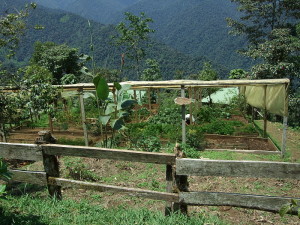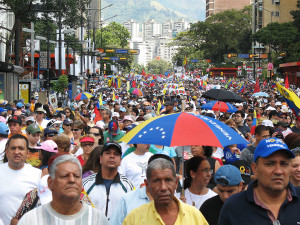Obama Expected to Sign GMO Bill
 When Obama was campaigning for the presidency in 2007, he spoke a lot about GMOs and his stand on them. A direct quote from one of his speeches: “We’ll let folks know whether their food has been genetically modified, because Americans should know what they’re buying.” Now, in 2016, President Obama is poised to sign a very weak federal GMO labeling law into effect. The federal standard supersedes strict state level standards, which is a huge step backwards for food activists, and a big win for huge corporations who don’t want us to know what we’re eating. The bill not only doesn’t clearly label GMOs, it will use a limited definition of what a GMO is, so many ingredients will remain unlabeled, plus this will all take years to implement. It’s estimated that 70-80% of the food eaten in the U.S. contains genetically modified ingredients, and 90% of Americans want these ingredients labeled. We can still put an immense amount of pressure on Obama to veto this bill, so sign and share every petition that comes your way.
When Obama was campaigning for the presidency in 2007, he spoke a lot about GMOs and his stand on them. A direct quote from one of his speeches: “We’ll let folks know whether their food has been genetically modified, because Americans should know what they’re buying.” Now, in 2016, President Obama is poised to sign a very weak federal GMO labeling law into effect. The federal standard supersedes strict state level standards, which is a huge step backwards for food activists, and a big win for huge corporations who don’t want us to know what we’re eating. The bill not only doesn’t clearly label GMOs, it will use a limited definition of what a GMO is, so many ingredients will remain unlabeled, plus this will all take years to implement. It’s estimated that 70-80% of the food eaten in the U.S. contains genetically modified ingredients, and 90% of Americans want these ingredients labeled. We can still put an immense amount of pressure on Obama to veto this bill, so sign and share every petition that comes your way.
Major Food Companies Paying Farmers to Go Organic
 The organic food industry is growing so big, so rapidly that large food companies are paying farmers to convert their farms to organic. Certified organic farmland only accounts for 1% of crop land in the U.S. and just can’t keep up with the demand. Converting a farm from conventional to organic is a complicated process – the land must be chemical free for three years before crops can be sold as organic, meticulous records must be kept to get and maintain the certification, farmers must rotate crops and get rid of weeds by hand rather than with chemicals. These stringent requirements are why most farms don’t get their certification, but large food companies are actually offsetting these costs for farmers and helping them through the transition period. Kashi has even created a program called Certified Transitional to alert consumers to the issues farmers encounter while transitioning to organic growing. Trends are showing that organic farms could account for 20% of America’s crop land, which is very exciting!
The organic food industry is growing so big, so rapidly that large food companies are paying farmers to convert their farms to organic. Certified organic farmland only accounts for 1% of crop land in the U.S. and just can’t keep up with the demand. Converting a farm from conventional to organic is a complicated process – the land must be chemical free for three years before crops can be sold as organic, meticulous records must be kept to get and maintain the certification, farmers must rotate crops and get rid of weeds by hand rather than with chemicals. These stringent requirements are why most farms don’t get their certification, but large food companies are actually offsetting these costs for farmers and helping them through the transition period. Kashi has even created a program called Certified Transitional to alert consumers to the issues farmers encounter while transitioning to organic growing. Trends are showing that organic farms could account for 20% of America’s crop land, which is very exciting!
Thousands of Venezuelans Have to Cross Borders to Find Food
 Venezuela’s collapse is the worst of its kind in decades, and the country has spiraled into a chaos of food scarcity, mobs and riots, blackouts, and low supplies. Many Venezuelans have been forced to liquidate their savings to pay for food because of huge levels of inflation, and now are even going to Columbia in order to find food. The country’s government closed off the borders in 2015 to stop criminal gangs from smuggling in goods and gasoline, but has recently decided to open the border to Columbia on weekends so citizens can get food and supplies. The pictures are dramatic and jolting, it’s hard to believe that in 2016, people are driving 10 hours to stand in line for 8 more hours to get sugar and flour. It’s a scene straight from the war days or a movie, but unfortunately, this is the reality for Venezuelans. The food crisis has no end in sight and is really affecting children in school, they can’t concentrate on lessons, some are fainting from hunger, and some don’t show up at all because they are standing in line for food for their family. Unfortunately, the Venezuelan government is not taking emergency measures or accepting much international humanitarian aid.
Venezuela’s collapse is the worst of its kind in decades, and the country has spiraled into a chaos of food scarcity, mobs and riots, blackouts, and low supplies. Many Venezuelans have been forced to liquidate their savings to pay for food because of huge levels of inflation, and now are even going to Columbia in order to find food. The country’s government closed off the borders in 2015 to stop criminal gangs from smuggling in goods and gasoline, but has recently decided to open the border to Columbia on weekends so citizens can get food and supplies. The pictures are dramatic and jolting, it’s hard to believe that in 2016, people are driving 10 hours to stand in line for 8 more hours to get sugar and flour. It’s a scene straight from the war days or a movie, but unfortunately, this is the reality for Venezuelans. The food crisis has no end in sight and is really affecting children in school, they can’t concentrate on lessons, some are fainting from hunger, and some don’t show up at all because they are standing in line for food for their family. Unfortunately, the Venezuelan government is not taking emergency measures or accepting much international humanitarian aid.

Comments are closed.